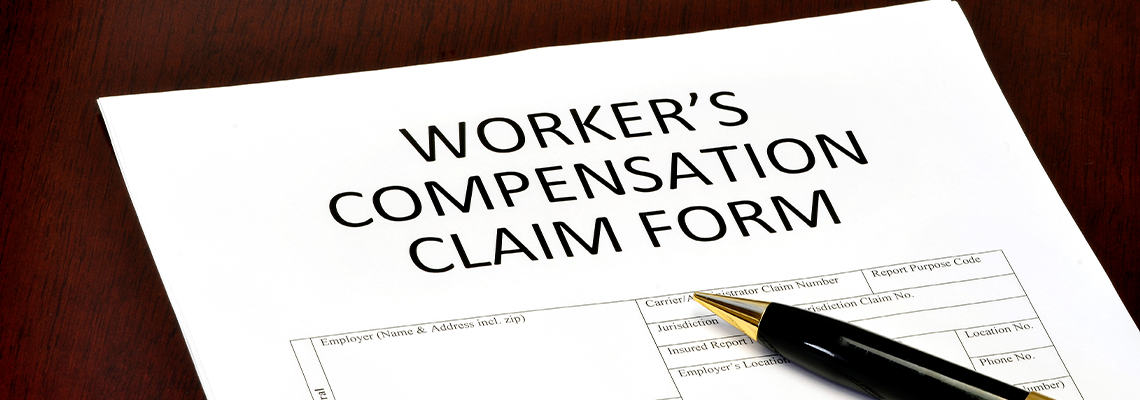
Injuries That Qualify for Workers’ Compensation
Workers’ compensation is a no-fault insurance program that pays those who are injured at work or fall ill from workplace conditions for medical expenses and lost income while recovering. No fault means that the employee does not have to sue the employer to be compensated for expenses related to injuries or illnesses sustained while working. Likewise, the employer cannot sue the employee for causing an accident that led to injuries.
Injuries or illnesses that are caused by third parties are exceptions to this lawsuit restriction. For instance, a piece of machinery being used by an employee may malfunction and cause an injury or toxic chemicals being used may not come with proper safety and use instructions and lead to illness. In these situations, a personal injury lawsuit against the supplier, manufacturer, or designer of the product or device can often be pursued.
If you have been injured at work or have fallen ill to chemical exposure or other causes in or around Fresno, California, and your workers’ compensation claim is being denied or delayed with a string of endless questions and requests by the insurance company, contact the Winter Law Group immediately. Our workers’ compensation and personal injury team will help you file an appeal or a personal injury lawsuit if warranted.
The Winter Law Group also proudly serves clients in Clovis, Visalia, Merced County, and Madera County.
Overview of California’s Workers’ Compensation System
California requires all employers, even those with as few as one employee, to provide workers’ compensation insurance. This also applies to businesses that are headquartered in another state but operate in California. Workers’ compensation provides insurance for injuries and illnesses that are employment-related and relieves both employee and employer from seeking resolution through a lawsuit.
Employers can purchase workers’ compensation insurance from a licensed insurance company or through the State Compensation Insurance Fund. Another option is to self-insure if they qualify in terms of net worth and annual income. Under the system, if an employee is injured, that person is eligible for compensation for medical expenses and any wages lost while recovering, as well as disability payments if the injury or illness prevents their return to work.
Which Injuries Are Covered?
The beauty of the workers’ compensation insurance program is that it basically covers any injury or illness resulting from work-related activities. The standard insurance-industry phrase to describe this is that the injury or illness must occur within the “course and scope of your employment.”
This does not, however, restrict coverable injuries to the workplace itself. If you’re out doing business for your company and you’re injured in your automobile, for instance, workers’ compensation should cover you. Even if you’re attending a work-related social function or business meeting that has been mandated by your employer, you should be covered. If you are working remotely as agreed upon, that should also fall within the “course and scope of your employment.”
Accidents that result from horseplay or being under the influence of drugs or alcohol, however, normally will not be covered. Also, if you’re injured while out on a lunch break and doing nothing employment-related, your claim will likely be rejected. If you’re out buying snacks or box lunches for a meeting in the office, then you would be covered.
Workers' compensation insurance provides basic benefits, including medical care, temporary disability benefits, permanent disability benefits, supplemental job displacement benefits, a return-to-work supplement, and death benefits.
Filing a Workers’ Compensation Claim
You must report your injury or illness to your employer as soon as possible. Your employer should then give you a standardized claim form authorized by the state Department of Workers’ Compensation. You need to fill out the “employee” section, and the employer should fill out their section. Ask for a copy of the completed form for your own record.
Once the form is submitted to the insurance company, you should expect a response within 14 days. If not, you need to contact the insurer. If you start to get the run around, you should seek legal guidance.
Compassionate and Loyal Legal Assistance
If you run into difficulties in filing a workers’ compensation claim or find your benefits being reduced or canceled by the insurance company, the Winter Law Group can help you file an appeal or explore avenues for third-party lawsuits to recover equitable compensation.
Let us manage your claim with the insurance company and negotiate for the best possible settlement, preferably from start to finish. If the insurance company doesn’t live up to its obligations, we can seek to pursue a lawsuit and represent you in court.